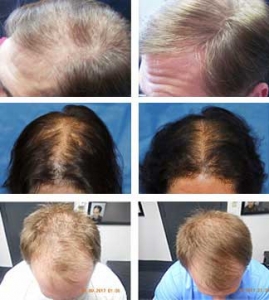Suffering from Alopecia? Laser Hair Therapy Can Help.
Laser Hair Loss Treatment Therapy
 If you have Alopecia, you know just how difficult a condition it can be to live with. Just trying to manage the problem is a challenge in of its self. Androgenetic alopecia affects men, women, and children around the world. Over 50 percent of women over the age of 65 and 40 percent of men over 40. Laser hair therapy has quickly become a way to help with alopecia. Here’s how this treatment works and the types of people best suited to it.
If you have Alopecia, you know just how difficult a condition it can be to live with. Just trying to manage the problem is a challenge in of its self. Androgenetic alopecia affects men, women, and children around the world. Over 50 percent of women over the age of 65 and 40 percent of men over 40. Laser hair therapy has quickly become a way to help with alopecia. Here’s how this treatment works and the types of people best suited to it.
How Laser Hair Therapy Works
The laser that is used for hair treatments is not the same type used for cutting or surgical procedures. The lasers used are a low-dose variety and don’t damage the skin. The light passes through the skin which stimulates a process called phototherapy that helps to promote the growth of any weak hair follicles. The process can only help weakened cells by supplying an extra blood supply but it cannot help dead follicles.
Some clients can see a change in just a few weeks but the major transition occurs between six to 12 months. Repeated treated are required so patients will need to persist with their therapy once the start. The best results have been achieved by combining laser treatment along with nutritional supplements and medications like minoxidil.
The Benefits of Laser Hair Therapy
There is no need for sedatives or anesthesia to have laser hair loss treatments. There are hand-held devices that can be self-administered by the client. While these devices have been approved by the FDA, they are less powerful than the units used in hair replacement clinics. Laser hair therapy is a less expensive hair restoration option than other treatments like hair transplants as an example.
Where to Find a Laser Therapy Specialist
You should meet with a Tupelo Hair Loss Treatment Specialist before starting any laser hair therapy treatment. An example of why this is an important step would be, what if your hair loss is from a thyroid disorder or anemia. In that case, laser therapy won’t be of much help to you and you may need a different treatment for that condition. If your alopecia is linked to a genetic disorder then there is a good chance that laser hair therapy would offer you some help.
Results don’t happen in just one treatment. You will need to be patient and diligent with future treatments.
Laser hair therapy treatment for alopecia is an effective way of treating the problem. It is relatively inexpensive compared to other treatments and is potentially life-changing to someone suffering from the effects of alopecia.
- Digital Detox for Your Mind & Scalp: Reclaiming Wellness from Inside Out - December 14, 2024
- October: Breast Cancer Awareness Month - October 3, 2024
- Effects of Chlorine on Thinning Hair - June 2, 2024




